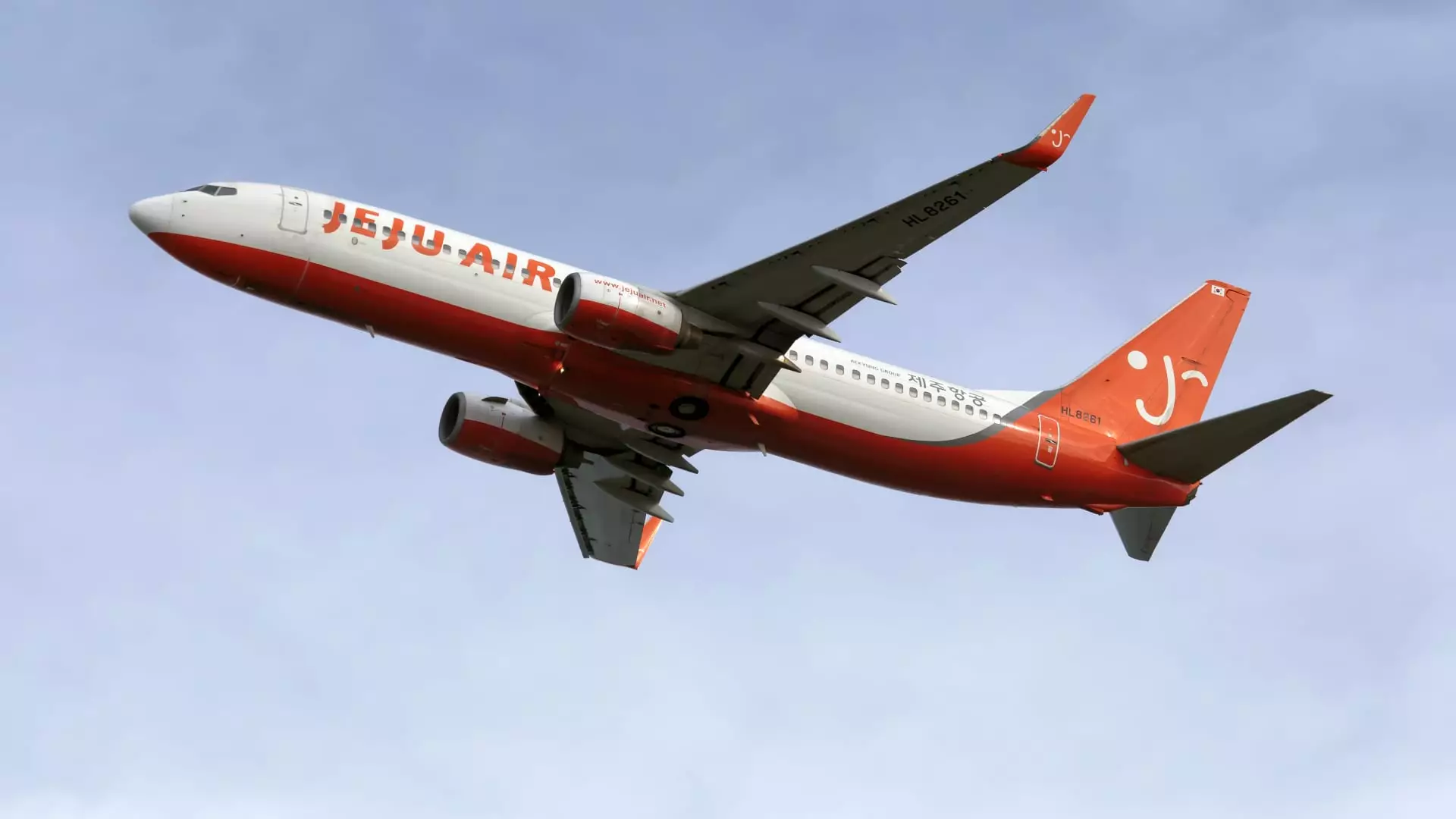The aviation world was shaken by a catastrophic event at Muan International Airport when a Jeju Air flight was forced to perform an emergency belly landing without its landing gear. This tragic incident resulted in only two survivors from a total of 181 passengers and crew aboard the aircraft, marking it as one of South Korea’s deadliest aviation disasters in decades. As investigations unfold, the incident raises critical questions about aviation safety and operational protocols, particularly for a widely used aircraft model.
The ill-fated flight was operating a Boeing 737-800, one of the most prevalent aircraft models worldwide, known for its commendable safety history. Despite its past reliability, the incident casts a shadow on the aircraft type that constitutes approximately 17% of the global commercial passenger jet fleet. With nearly 4,400 units still in operation and an average age of 13 years, these aircraft are emblematic of the commercial aviation landscape.
Jeju Air’s aircraft, delivered in 2017 and previously operated by Ryanair, had a lifespan that was relatively standard for commercial airliners. Aerospace analysts like Richard Aboulafia maintain that it is improbable for an investigative team to discover inherent design flaws given the longevity and storied history of the Boeing 737-800.
Immediate Reactions from Authorities
In response to this devastating crash, South Korea’s acting President Choi Sang-mok initiated an emergency audit of the national fleet of Boeing 737-800s. This preemptive measure seeks to reassure the traveling public and aircraft operators amidst heightened scrutiny. Despite the consistent operational history of the model, the need for such inspections highlights the fragility of public confidence in air travel following a severe incident of this nature.
The Investigation Process: A Long Road Ahead
The complexity of air disaster investigations means that a conclusive report could take over a year to compile. Much of the focus now lies on uncovering the reasons behind the landing gear failure to deploy, an essential component of commercial flight safety. Even in scenarios involving hydraulic failures, seasoned pilots are trained to manually deploy the landing gear, suggesting that a thorough investigation is needed to understand the series of events leading up to the disaster.
There are several theories being examined, including the possibility of a bird strike impairing the engines, which could have left the pilots with inadequate time to address emergency protocols. Insights from retired air safety experts like Jeff Guzzetti add to the gravity of this concern, indicating that under such distressing conditions, cockpit procedures may be compromised. He further notes that if the aircraft had managed to avoid colliding with the hard wall at the end of the runway, the outcome could have potentially been less tragic.
In accordance with international standards, the investigation will be led by South Korea, with support from the National Transportation Safety Board (NTSB), Boeing, and the Federal Aviation Administration (FAA). This collaborative framework emphasizes the importance of thorough scrutiny and transparency in the wake of aviation disasters, aiming to prevent future tragedies by addressing systemic failures rather than merely attributing blame to manufacturers.
Broader Implications for Aviation Safety
The Muan International Airport tragedy serves as a chilling reminder of the unpredictability of aviation operations, prompting renewed discussions about safety protocols and regulatory oversight in the aviation industry. As investigators dig deeper into the circumstances surrounding this harrowing event, the aviation sector watches closely, keenly aware that lessons learned here could influence regulatory practices and pilot training methods globally.
As we reflect on this disaster, it is crucial to remember that behind every statistic lies human lives, families torn apart, and communities mourning. This incident compels us to prioritize safety and vigilance in air travel, not just as passive passengers but as participants in a systems-dependent mode of transportation that connects the globe.

